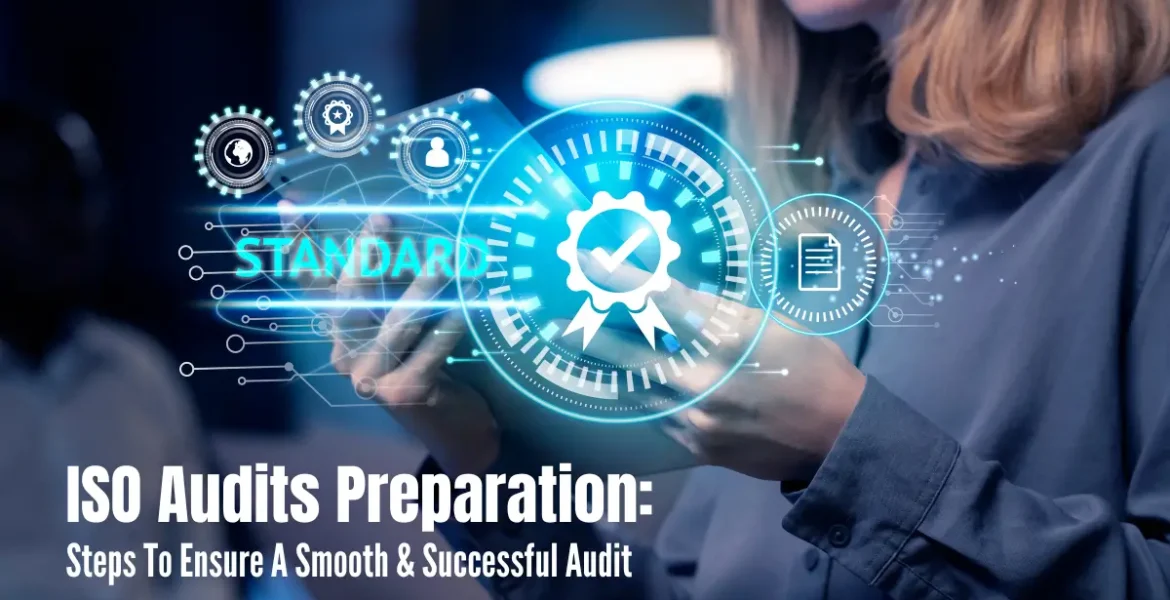ISO audits play a critical role in ensuring that businesses adhere to international standards and maintain quality management systems. To achieve a successful audit outcome, proper preparation is key.
ISO Management Consultants is here to help you understand the specific ISO standard being audited and clarify the areas that will be covered. Here is a list of all the steps you need to prepare to ensure a smooth and successful ISO UKAS implementation. Understanding these aspects will help you align your preparations accordingly.
Things To Do Before The ISO Audits Start
Familiarise Yourself With The Audit & Conduct A Gap Analysis
Review the standard thoroughly, identifying key documentation, processes, and procedures that will be evaluated during the audit. Assess your current practises and documentation against the requirements of the ISO standard. Identify any gaps or non-conformities that need to be addressed and develop an action plan to rectify them.
Establish An Internal Audit Team
Assemble a dedicated internal audit team consisting of individuals that have the necessary knowledge and expertise. Assign clear roles and responsibilities within the team to ensure smooth coordination and effective execution of audit preparation tasks.
Prepare Documentation
Organise and update all relevant documentation, records, and policies to ensure they are compliant with the ISO standard being audited. Ensure that your documentation is easily accessible, well-structured, and up-to-date. This will facilitate the audit process and demonstrate your commitment to maintaining a robust quality management system.
Conduct Internal Audits
To simulate the actual audit process, conduct internal audits within your organisation. These mock audits will help identify potential non-conformities and areas for improvement. Use the findings from these internal audits to make necessary adjustments before the official audit takes place.
Address Non-Conformities
This can be divided into two more steps, as follows.
A. Developing corrective action plans for any identified non-conformities:
Once non-conformities are identified, it is essential to develop comprehensive corrective action plans. These plans should outline specific steps to rectify the non-conformities and bring processes and documentation in line with the ISO standard requirements. Assign responsibilities and set realistic timelines for implementing the necessary changes and improvements.
B. Implementing necessary changes and improvements in processes and documentation:
With the corrective action plans in place, it is time to implement the required changes and improvements. This may involve updating procedures, revising documentation, or enhancing existing processes. Ensure that all necessary adjustments are made and that the updated processes and documentation are communicated effectively across your organisation.
- Proper Training & Awareness
To prepare your employees for the audit, organise training sessions to familiarise them with the ISO standard requirements and the audit process. These sessions should focus on relevant sections of the standard, specific procedures to follow, and the importance of compliance. Emphasise the significance of the audit to your employees and communicate their roles and responsibilities during the audit process. Encourage their active participation, highlighting how their cooperation and adherence to procedures will contribute to a successful outcome.
Pre-Audit Review
Conduct a thorough review of documentation and processes, ensuring alignment with ISO requirements and addressing non-conformities. Assess readiness by confirming stakeholder awareness, organised documentation, and employee preparation for the upcoming audit.
Communication With Auditors
Establish clear, open channels of communication with the audit team. Designate a point of contact to address auditors’ questions and concerns promptly. Demonstrating a commitment to the audit process and providing comprehensive responses to establish a positive rapport.

Ensuring Smooth ISO Audits
To ensure a smooth audit, you need to familiarise yourself with the audit process and the expectations set by the auditors. Understand the different stages of the audit, such as documentation review, interviews, and on-site inspections. Be prepared to provide the necessary access to information and cooperate with the auditors throughout the process.
During the audit, collaborate with the auditors and provide them with the required access to information, facilities, and personnel. Be responsive to their requests and demonstrate a willingness to work together towards a successful audit outcome.
Things To Take Care Of After The ISO Audits
Reviewing the audit findings and recommendations:
Once the audit is completed, carefully review the audit findings and recommendations provided by the auditors. Assess areas for improvement and identify any additional corrective actions that need to be taken.
Implementing any necessary corrective actions and improvements:
Take prompt action to implement the recommended corrective actions and improvements. Address any identified non-conformities and make necessary adjustments to strengthen your quality management system.
Use the audit findings and recommendations as valuable insights for continual improvement. Incorporate lessons learned into your ongoing processes and procedures to enhance the overall effectiveness of your quality management.
ISO Management Consultants Can Handle All Your ISO Audits Related Issues
Hiring professionals to handle ISO audits and ISO UKAS implementation in a business is crucial for ensuring expertise, adherence to standards, and a seamless process that results in successful certification.
Our ISO consultants in the UK have decades of experience assisting businesses in defining processes, creating documentation for ISO registration, and navigating the path to full compliance for ISO UKAS implementation.
Businesses of all sizes in the commercial, industrial, private and public construction, manufacturing, installation, and commercial/industrial sectors are among our satisfied customers for successful ISO audits. Contact us today to get a free quote, or for any questions you may have!

